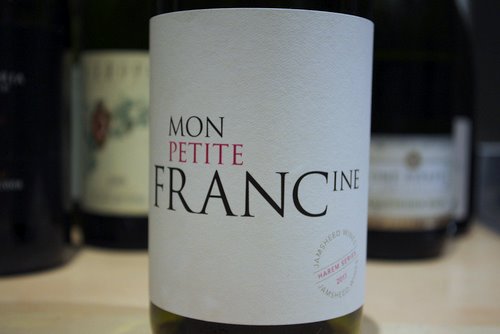Some good news. Wine Australia today announced that they are dropping the tasting panel element from export approval.
Getting export approval has been a big problem for natural winemakers in Australia, and continues to be a big issue in South Africa and New Zealand.
I’ve written about it extensively here, giving some case studies. In an absurd bit of officialdom, anyone who wants to export their wines from these countries has to submit them to a tasting panel for approval. In theory, this sounds great: the panel stops bad wine from leaving the country and damaging its reputation.
But the reality has been that some great (if unconventional) wines have been refused permission, even when they have buyers waiting overseas. One famous case was Gary Mills’ Mon Petite Francine (pictured above). Gary, whose label is Jamsheed, had buyers waiting in Japan for this delightfully bright, aromatic and utterly drinkable Yarra Valley Cabernet Franc, which is naturally made and not altogether clear. But it was refused export permission. And not because of its bad French grammar, but because of its flavour.
Fortunately, this is unlikely to happen again in Australia. Credit to Wine Australia for listening and responding.
‘Very unhappy my main marketing tool has decided to finally call it quits,’ joked Gary Mills today on Twitter. ‘Thinking about starting my own panel.’
3 Comments on How export approval can stand in the way of less conventional or natural wines
WOW, I didn’t know this.
Is this the same panel that approved Yellow Tail for export? If yes, I would like to send them a strongly worded letter.
Sometime it occurs to me that the winegrowing business & planted vine acreage expands through the following cycle:
a traditional wine regions becomes a success, at home, then abroad,
this results is more vines being planted in satelite appellations, then in non-traditional wine regions (lots of tinkering, counterfeiting, etc arrive, mostly involving cheap wines)
the non-traditional region gets stronger, quality producers appear
and soon turns into a properly regulated appellation,
plonk production moves further on
In this context, perhaps plonk production is a natural part of growth in the wine business. Of course, there must be a valid demand for plonk, but there always is, I think.
Hi Jamie, just as a point of comment regarding the example from NZ in your linked article, and the rejection (and subsequent acceptance) of a wine for a TA level of <3.5g/L, that's actually a prescribed requirement from the EU, not from NZ. Many export markets (of NZ) stipulate analytical parameters, whether chemical spray residues, use of particular adjuncts or processing agents, chemical analyses eg VA TA pH TSO2. You can, and we do, argue the organoleptic analyses (though I think you will find that most 'review panels' are quite encompassing in their thoughts) of wines that go through these panels. It's an interesting topic but I don't believe that it's 'ANTI-different wines'. Certainly, within NZ, these are stipulated in legislation in be response to the export markets….maybe something to had about their destination rather than their origin….??!!